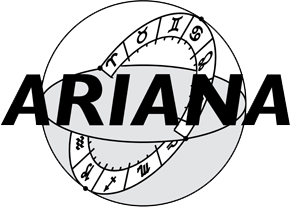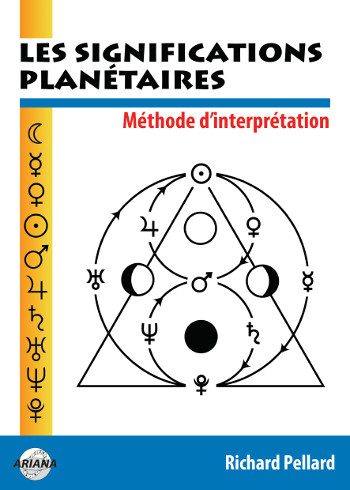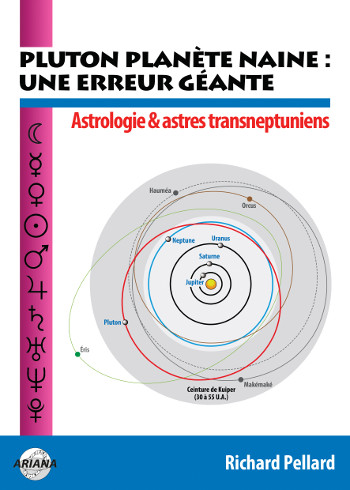Your Planets
Portraits of the Planets
Aspects between Planets
The planetary ages
The planetary families
Planets in Signs
The Planets in comics


 The Moon is obviously not a “planetary trio”, but the only natural satellite of the Earth. So she alone forms the family “Small p” which has a function of homogenization, globalization and overall regulation, of fluidification and harmonization of conflicts and latent tensions induced by the heterogeneity of levels ‘R’, ‘E’ And ‘T’.
The Moon is obviously not a “planetary trio”, but the only natural satellite of the Earth. So she alone forms the family “Small p” which has a function of homogenization, globalization and overall regulation, of fluidification and harmonization of conflicts and latent tensions induced by the heterogeneity of levels ‘R’, ‘E’ And ‘T’.
Positive function (‘p’ or “small p” or “Intensive P”): the good for everything: plastic, receptive, confident, malleable, gifted to maintain its balance and its coherence by assimilating all the elements of the environment which contribute to its fullness, hypersensitive to the coherence, the interdependence, the globality and the homogeneity of the beings, things and situations. He knows how to maintain an overall vision in all circumstances which avoids the blinkers of the hyper-specialist.
Negative function (“non-P” or lack of Extensive power): the good-for-nothing: naive, anarchic, disorderly, dependent, incapable of structuring, prioritizing, differentiating the different elements of reality. He allows himself to be tossed about passively by the flood of circumstances, refusing any mobilizing goal, any struggle, any philosophy.
Symmetry obliges, at Extensive power (capital ‘P’ initial) of Sun-Mars-Pluto corresponds to an intensive power (lowercase ‘p’ initial), represented by the lunar function. Where the ‘P’ of Sun-Mars-Pluto divides, compartmentalizes and hierarchizes, the Moon ‘p’ gathers, homogenizes and globalizes. The trio ‘P’ ensures the proper functioning of the cogs of power by clearly differentiating them, the Moon ‘p’ puts oil in it so that the cogs do not creak and the transmissions are more fluid. The shape of the Extensive Power is pyramidal, angular, exclusive, from the Plutonian base to the solar summit passing through the Marsian intermediate zone; the form of intensive power is spherical, round, smooth, inclusive.
From a lunar point of view, the real naturally forms an inseparable whole where everything holds together: the apparent realities (level ‘R’), the concrete realities (level ‘E’) and the invisible realities (level ‘T’) merge into a homogeneous and undifferentiated whole. The important thing is not the precise function (“King-Sun”, “Warrior-Mars” or “Sorcerer-Pluto”) occupied by the members of a family or a group, but the fact that while being differentiated, they belong intimately to the same family, to the same group. Between members of the same clan, we support each other, we support each other, we instinctively come together.
Symbolically, the lunar function corresponds to the “Universal Mother”, the one that broods, nourishes, protects. Concretely, it is related to what sociologists call primitive groupality: we are together by vital necessity more than by negotiated social pact, because we are an integral part of the same tribe, the one whose members are naturally familiar to us. Without seeming so apparently “severe” Extensive power, intensive power can be extremely coercive: the herd instinct also has its laws of inclusion (natural obligation, and not contractual, to “close elbows inside”, individualistic behaviors being very poorly accepted) and exclusion (“get out, you stink, you’re not from my gang”. The primary groupality of lunar intensive power prohibits the mixing of tribes. To live in harmony, let’s stay among ourselves, let’s merge with the group.
At the individual level, the lunar intensive power allows the individual to integrate easily and naturally into a group, avoiding getting caught up in too formal, too codified relationships (‘R’), rivalry relationships (‘E’) and unconscious but tacit innuendos (‘T’). As long as the Moon forms predominantly consonant aspects, he instinctively knows how to pass smoothly between the meshes of the regulations with which he allows himself all kinds of privacies, to follow the lines of least resistance rather than inserting himself into the balance of power, imbibe the atmosphere of his group rather than trying to dissect the secret workings of it. The fact of being rather nice, good dough, available, submissive, of a disarming naivety and good will, means that we cannot refuse him much: we accept him with his incompetences, his insufficiencies, his weaknesses because he keeps a low profile and deep down he is not and does not want to be in competition with anyone. His spontaneous way of transforming hierarchical relationships into intimate, human, familiar relationships can be extremely effective: casually, he gently imposes, without seeming to, his personal rhythms, his habits, his needs. For him everything is the same and all are the same: the victors and the vanquished, the strong and the weak, the known and the unknown—even if he has, deep down, a more marked receptivity and indulgence for the latter than for the first.
If the Moon receives a maximum of dissonances and they are badly experienced and integrated, the individual is very likely to fall into the wrongs of the “intensive power” : unlike the hierarchical ‘P’ of Sun-Mars-Pluto, the lunar ‘p’ can make the individual completely anarchic, disorderly, unorganized. He abandons himself, lets himself go within his group of belonging which he engulfs and parasitizes without even realizing it. Incapable of self-discipline, partisan of the policy of least effort, insensitive to the long-term implications of such an attitude, he lets himself be carried along comfortably by others. He has no ego (he is not individualized enough for that), and yet his egocentrism is immense: nothing else matters to him but his immediate well-being, and he finds it quite natural that others do it without him having to lift a finger. If they balk at this duty of one-way solidarity, he does not hesitate, like a small child stubbornly refusing to become an adult, to play blackmail on weakness, to pity others by showing off their failings. Incapable of voluntarily dissociating himself from his group, he is also powerless to assert himself in it, to find his usefulness there, his deep reason for being. By dint of blending into the atmosphere, he becomes anonymous, transparent, inconsistent, prisoner of his gregarious and herding instincts, refusing to take responsibility. He dreams of his life rather than living his dreams, prefers the reassuring torpor and the comfortable dependence of the family bosom to the hard adventure of an assumed existence and a claimed independence.
▶ The Lunar: Psychological profile
▶ The lunar function (homogeneous wholeness)
▶ Pouvoirs de Soleil-Lune : la Lune
▶ Lunar stage (from 0 to 1 month old): the age of communion
▶ Espace personnel et aura lunaire
▶ Fonction lunaire et libéralisme économique
▶ La dialectique des pouvoirs dans le système R.E.T.

Les significations planétaires
par
620 pages. Illustrations en couleur.
La décision de ne traiter dans ce livre que des significations planétaires ne repose pas sur une sous-estimation du rôle des Signes du zodiaque et des Maisons. Le traditionnel trio Planètes-Zodiaque-Maisons est en effet l’expression d’une structure qui classe ces trois plans selon leur ordre de préséance et dans ce triptyque hiérarchisé, les Planètes occupent le premier rang.
La première partie de ce livre rassemble donc, sous une forme abondamment illustrée de schémas pédagogiques et tableaux explicatifs, une édition originale revue, augmentée et actualisée des textes consacrés aux significations planétaires telles qu’elles ont été définies par l’astrologie conditionaliste et une présentation détaillée des méthodes de hiérarchisation planétaire et d’interprétation accompagnées de nombreux exemples concrets illustrés par des Thèmes de célébrités.
La deuxième partie est consacrée, d’une part à une présentation critique des fondements traditionnels des significations planétaires, d’autre part à une présentation des rapports entre signaux et symboles, astrologie et psychologie. Enfin, la troisième partie présente brièvement les racines astrométriques des significations planétaires… et propose une voie de sortie de l’astrologie pour accéder à une plus vaste dimension noologique et spirituelle qui la prolonge et la contient.
Téléchargez-le dès maintenant dans notre boutique

Pluton planète naine : une erreur géante
par
117 pages. Illustrations en couleur.
Pluton ne fait plus partie des planètes majeures de notre système solaire : telle est la décision prise par une infime minorité d’astronomes lors de l’Assemblée Générale de l’Union Astronomique Internationale qui s’est tenue à Prague en août 2006. Elle est reléguée au rang de “planète naine”, au même titre que les nombreux astres découverts au-delà de son orbite.
Ce livre récapitule et analyse en détail le pourquoi et le comment de cette incroyable et irrationnelle décision contestée par de très nombreux astronomes de premier plan. Quelles sont les effets de cette “nanification” de Pluton sur son statut astrologique ? Faut-il remettre en question son influence et ses significations astro-psychologiques qui semblaient avérées depuis sa découverte en 1930 ? Les “plutoniens” ont-ils cessé d’exister depuis cette décision charlatanesque ? Ce livre pose également le problème des astres transplutoniens nouvellement découverts. Quel statut astrologique et quelles influences et significations précises leur accorder ?
Enfin, cet ouvrage propose une vision unitaire du système solaire qui démontre, chiffes et arguments rationnels à l’appui, que Pluton en est toujours un élément essentiel, ce qui est loin d’être le cas pour les autres astres au-delà de son orbite. Après avoir lu ce livre, vous saurez quoi répondre à ceux qui pensent avoir trouvé, avec l’exclusion de Pluton du cortège planétaire traditionnel, un nouvel argument contre l’astrologie !
Téléchargez-le dès maintenant dans notre boutique